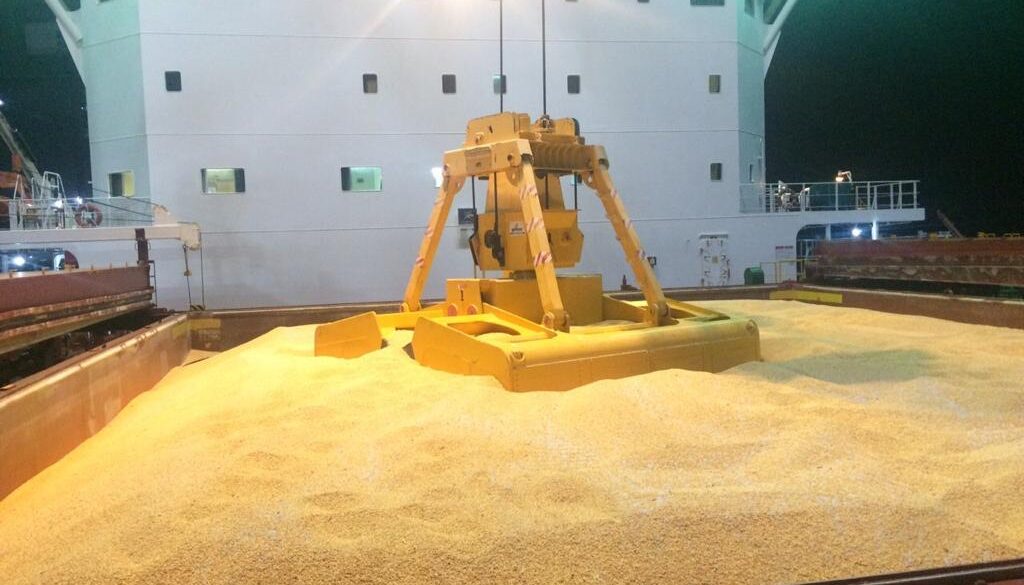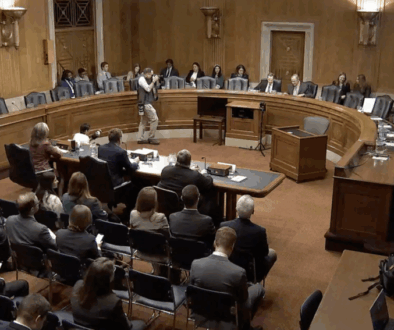Not just Mexico – US worries over barriers to agricultural trade across the world
From Algeria to Vietnam, Norway to Nigeria, and the European Union to China, regulation of agriculture biotechnology by countries around the world is creating increasingly concerning barriers to US agriculture and technology trade, according to a recent report from the Office of the US Trade Representative (USTR).
The report shows the US government is highly concerned about what it sees as inconsistent and unscientific regulation of farm chemicals and genetically modified crops that are widely used in the United States but are subjects of concern abroad. Farmers in the United States annually spray millions of pounds of pesticides that are banned in other countries, including the EU, China and Brazil.
Among other concerns, the US cites “excessive” requests for data on certain products and expresses frustration that the EU seeks to ban pesticides until they are proven safe, instead of approving pesticides until they are proven unsafe.
In a 394-page report, the USTR detailed a range of concerns with specific countries, including those related to its ongoing bitter battle with Mexico over genetically modified crops (GMOs).
Mexico has not approved a new genetically modified cotton variety since at least 2018, the report notes, despite the cultivation of GMO cotton in Mexico for more than 25 years “with no evidence of adverse impact on the environment, biodiversity, or animal or plant health.” US officials are continuing to press the country on the issue, just as they are on Mexico’s restrictions on GMO corn. The US has also battled with Mexico over its efforts to ban glyphosate weed killer, developed by Monsanto.
In another example cited in the report, the US government complains that Taiwan’s decision to ban genetically modified food in school meal programs is not based on science.
Yet, the document makes it clear that the question of science is also a concern in the countries at odds with the US. Many other countries have expressed concern with what they see as the United States’ lax pesticide laws, driven not by science but by corporate influence.
In March, The New Lede published government emails detailing how tightly the US government works with large international pesticide and seed companies in formulating its positions on key trade issues with foreign countries, including the European Union, Mexico and Thailand.
The USTR report comes as trading partners have increasingly been raising concerns about what they see as the risks associated with various US-approved pesticides and GMO crops. Different countries seeking to ban or limit these products cite scientific research to back their concerns, just as the US says science backs its positions supporting the same products.
For example, Mexico has vigorously defended its planned ban on glyphosate – which was supposed to go into effect on April 1, but was delayed amid heavy US lobbying – and genetically modified corn being used in food. The Mexican government said in a response to a trade dispute filed by the US that the US is not basing its decisions on science.
“The United States alleges that the challenged measures are not based on science, but seeks to prove its arguments with publications without the minimum scientific rigor, outdated, or, if applicable, with an evident conflict of interest,” the Mexican response states.
Proponents of the ban say the moves by the Mexican government are popular in the country, and the delay shows the influence US and industry can have on the government
“The United States will continue to pressure Mexico. They explicitly say so in the report,” said Fernando Bejarano, of the Pesticide Action Network in Mexico.
Pesticide residue in foods
In the United States, the two biggest crops, corn (around $16.8 billion) and soybeans (around $29.9 billion), are largely sold around the world as bulk commodities, where crops from US producers are sold to commodity traders and shipped around the world.
Crops grown with the use of pesticides can carry residues of those chemicals into finished foods that people and animals consume. Governments set maximum residue limits (MRLs) for individual crops and chemicals in acknowledgment of the presence of those residues, and residues that fall below the MRLs are considered legal and safe.
But the MRLs are not consistent from country to country, and the US consistently allows for the highest MRLs in the world, which can lead to difficulties for grain trading companies, such as Archer Daniels Midland, Bunge, Cargill, and Louis Dreyfus, in global trading.
Chuck Benbrook, an agricultural economist focusing on pesticides, said that for decades, the US has been concerned about other countries using pesticides banned in the US, but now, most of the world has stronger laws than the US.
“It’s flipped completely on its head, and it’s the US government advocating for retaining tolerances that most of the rest of the world is unwilling to accept,” Benbrook said. “It’s a very strange thing.”
He said he’s not surprised the USTR is advocating for more pesticide allowances globally.
“The whole US agriculture system is based on a bulk commodity model, US agribusiness companies are opposed to any efforts to distinguish distinct parts of the supply chain.” Benbrook said. “It runs against their business model.”
“Excessive data requests”
Common complaints by USTR include sluggish regulatory reviews and “excessive data requests” from other countries. The foreign regulatory regimes create significant uncertainty around regulatory approval for GMOs and other new biotechnology, the report states.
China’s regulatory approval process for ag biotechnology is cited as an example in the report. China, which at $33.7 billion in 2023 was the US largest agricultural importer, can slow commercialization and cause trade impacts because of the uncertainty of its unpredictable process “particularly for U.S. exports of corn, soy, canola, and alfalfa.”
For example, in 2014, China rejected more than 1 million tonnes of US corn products that contained a GMO trait developed by Syngenta that was approved in the US but not in China. More than 100 farmers and exporters sued Syngenta. The company agreed to pay farmers $1.5 billion in a settlement.
“For many years, biotechnology product approvals by China’s regulatory authorities mainly materialized only after high-level political intervention,” the report said.
China has pledged to “implement a transparent, predictable, efficient, and science- and risk-based system for the review of products of agricultural biotechnology” in trade agreements with the United States, but the USTR said China has not yet implemented the program, leading to more delays.
There have been similar issues with India, which annually is the export market for around $2 billion in trade.
“India’s biotechnology approval processes are slow, opaque, and subject to political influences and do not appear to take into account science-based approval processes for GE products in exporting countries,” the USTR report said.
In South Korea, which accounts for around $8.8 billion annually in trade, the system for approving new products is also problematic, according to the USTR..
“The approval process for new biotechnology products is onerous and protracted due to inefficiencies, which include redundant reviews and excessive data requests. The regulatory approval is managed across five different agencies, each with its own process and data submission requirements,” the report said.
The USTR said the US government and industry have provided input on how to improve the process, but those have had little impact because legislative changes are needed, according to the report.
For years, Vietnam also was inactive in approving new GE products for cultivation, but in 2023 started accepting more products, including corn, soybean, canola and cotton. Vietnam also is a major importer of products.
The European Union, which had about $12.3 billion of US ag exports in 2023, has used MRLs in a different way — to try to stop other countries from harming pollinators, particularly bees. The EU government has barred all imports of crops containing clothianidin and thiamethoxam, two neonicotinoid insecticides, after March 7, 2026. The US has worked closely with the pesticide industry to protest this, including with the World Trade Organization.
“The lack of predictability, excessive data requirements, and delays in the EU’s approval process for GE crops have prevented products from being exported to the EU, even though these products have been approved and grown safely in the United States for many years,” the report said.
In 2021, Peru extended a moratorium on cultivation and import of genetically modified crops and seeds for 15 years, and the US alleges that Peru hasn’t put forward a “scientific justification for it.”
The US has also expressed concerns about Turkey requiring traceability records be kept for 20 years for all animal feed products using ag biotechnology.
(Featured image courtesy of the US Grains Council.)



